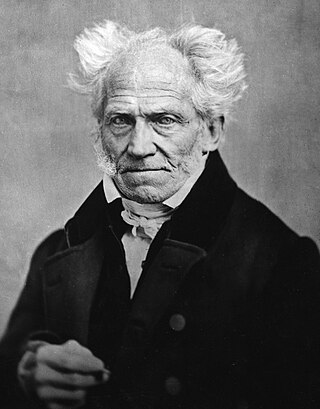
Arthur Schopenhauer was a German philosopher. He is known for his 1818 work The World as Will and Representation, which characterizes the phenomenal world as the manifestation of a blind and irrational noumenal will. Building on the transcendental idealism of Immanuel Kant, Schopenhauer developed an atheistic metaphysical and ethical system that rejected the contemporaneous ideas of German idealism.
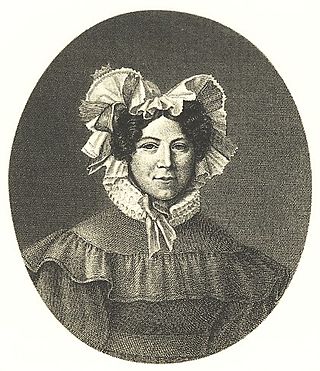
Johanna Schopenhauer was the first German woman to publish books without a pseudonym, an influential literary salon host, and in the 1820s a popular author in Germany. She was also the mother of the German philosopher Arthur Schopenhauer.

Saxe-Coburg and Gotha, or Saxe-Coburg-Gotha, was an Ernestine duchy in Thuringia ruled by a branch of the House of Wettin, consisting of territories in the present-day states of Thuringia and Bavaria in Germany. It lasted from 1826 to 1918. In November 1918, Charles Edward, Duke of Saxe-Coburg and Gotha, was forced to abdicate. In 1920, the northern part of the duchy was merged with six other Thuringian free states to form the Free State of Thuringia: Saxe-Weimar-Eisenach, Saxe-Altenburg and Saxe-Meiningen, Schwarzburg-Rudolstadt and Schwarzburg-Sondershausen, as well as the People's State of Reuss. The southern part of the duchy, as southernmost of the Thuringian states, was the only one which, after a referendum, became part of the Free State of Bavaria.
Wolfgang Schirmacher is a German philosopher, editor and educator in the field of philosophy, art and critical thought. He was the Founding Dean of the Media and Communications division at the European Graduate School, where he now is a full professor and holder of the Arthur Schopenhauer Chair of Philosophy. He has edited several journals and written books, as well as developed curricula in philosophical disciplines at major universities.
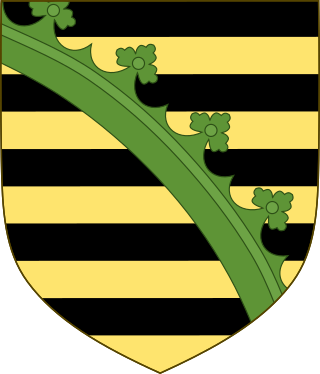
The House of Wettin was a dynasty which included Saxon kings, prince-electors, dukes, and counts, who once ruled territories in the present-day German federated states of Saxony, Saxony-Anhalt and Thuringia. The dynasty is one of the oldest in Europe, and its origins can be traced back to the town of Wettin, Saxony-Anhalt. The Wettins gradually rose to power within the Holy Roman Empire. Members of the family became the rulers of several medieval states, starting with the Saxon Eastern March in 1030. Other states they gained were Meissen in 1089, Thuringia in 1263, and Saxony in 1423. These areas cover large parts of Central Germany as a cultural area of Germany.
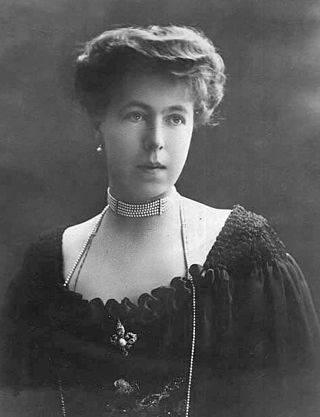
Princess Alexandra of Saxe-Coburg and Gotha was the fourth child and third daughter of Alfred, Duke of Saxe-Coburg and Gotha, and Grand Duchess Maria Alexandrovna of Russia. As the wife of Ernst II, she was Princess consort of Hohenlohe-Langenburg. She was a granddaughter of both Queen Victoria of the United Kingdom and Tsar Alexander II of Russia.
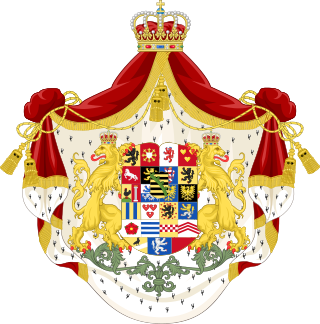
The House of Saxe-Coburg and Gotha is a European royal house. It takes its name from its oldest domain, the Ernestine duchy of Saxe-Coburg and Gotha, and its members later sat on the thrones of Belgium, Bulgaria, Portugal, and the United Kingdom and its dominions.

Italian Journey is Johann Wolfgang von Goethe's report on his travels to Italy from 1786 to 1788 that was published in 1816 & 1817. The book is based on Goethe's diaries and is smoothed in style, lacks the spontaneity of his diary report and is augmented with the addition of afterthoughts and reminiscences.
Greek love is a term originally used by classicists to describe the primarily homoerotic customs, practices, and attitudes of the ancient Greeks. It was frequently used as a euphemism for both homosexuality and pederasty. The phrase is a product of the enormous impact of the reception of classical Greek culture on historical attitudes toward sexuality, and its influence on art and various intellectual movements.

Alfred Schmidt was a German philosopher.
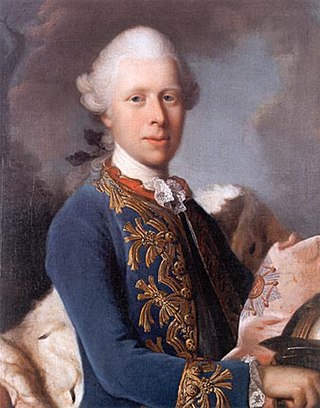
Ernest II, Duke of Saxe-Gotha-Altenburg was the reigning Duke of Saxe-Gotha-Altenburg from 1772 to 1804. He was the third but second surviving son of Frederick III, Duke of Saxe-Gotha-Altenburg and Luise Dorothea of Saxe-Meiningen. The death of his older brother Frederick in 1756 made him the heir to the duchy of Saxe-Gotha-Altenburg.
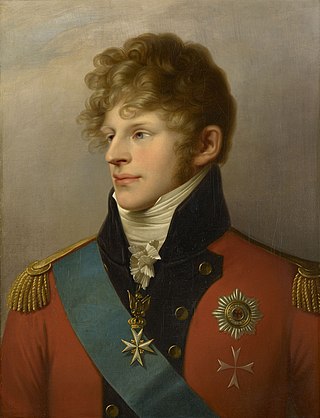
Augustus, Duke of Saxe-Gotha-Altenburg, was a Duke of Saxe-Gotha-Altenburg, and the author of one of the first modern novels to treat of homoerotic love. He was the maternal grandfather of Prince Albert, consort of Queen Victoria.

Saxe-Gotha-Altenburg was a duchy ruled by the Ernestine branch of the House of Wettin in today's Thuringia, Germany. The extinction of the line in 1825 led to a major re-organisation of the Thuringian states.

Johann Wolfgang von Goethe was a German polymath, who is widely regarded as the greatest and most influential writer in the German language. His work has had a profound and wide-ranging influence on Western literary, political, and philosophical thought from the late 18th century to the present day. A poet, playwright, novelist, scientist, statesman, theatre director, and critic, his works include plays, poetry and aesthetic criticism, as well as treatises on botany, anatomy, and color.

Karoline Amalie of Hesse-Kassel, was a German princess and member of the House of Hesse-Kassel by birth, and Duchess of Saxe-Gotha-Altenburg by marriage.

Princess Charlotte of Saxe-Meiningen was a member of the House of Saxe-Meiningen and a Princess of Saxe-Meiningen by birth and a member of the House of Saxe-Gotha-Altenburg and Duchess consort of Saxe-Gotha-Altenburg through her marriage to Ernest II, Duke of Saxe-Gotha-Altenburg.
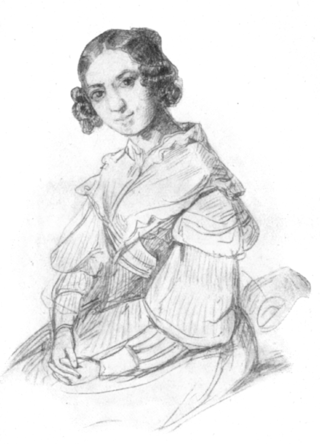
Luise Adelaide Lavinia Schopenhauer, known as Adele Schopenhauer, was a German author. She was the sister of the philosopher Arthur Schopenhauer and daughter of author Johanna Schopenhauer. Henriette Sommer and Adrian van der Venne were pseudonyms used by her.

Abba Gorgoryos was an Ethiopian priest from Amhara tribe and lexicographer of noble origin. He is famous for co-authoring encyclopedias with his friend and companion Hiob Ludolf in two Ethiopian languages, Amharic and Ge'ez, both in Ge'ez script.
Events from the year 1819 in Germany.

The Ernestine Gymnasium is a humanistic and modern gymnasium in Gotha, Germany, the successor of the Illustrious Gymnasium, founded in 1524, which in 1853 was merged with the recently founded Real-Gymnasium Ernestinum, named in honour of Ernest I, Duke of Saxe-Coburg and Gotha. The merged school continued to be known as the Ernestinum. Until 1947, when it was closed, it was considered the oldest gymnasium in the German-speaking world. It was re-founded in 1991, shortly after German reunification.

















